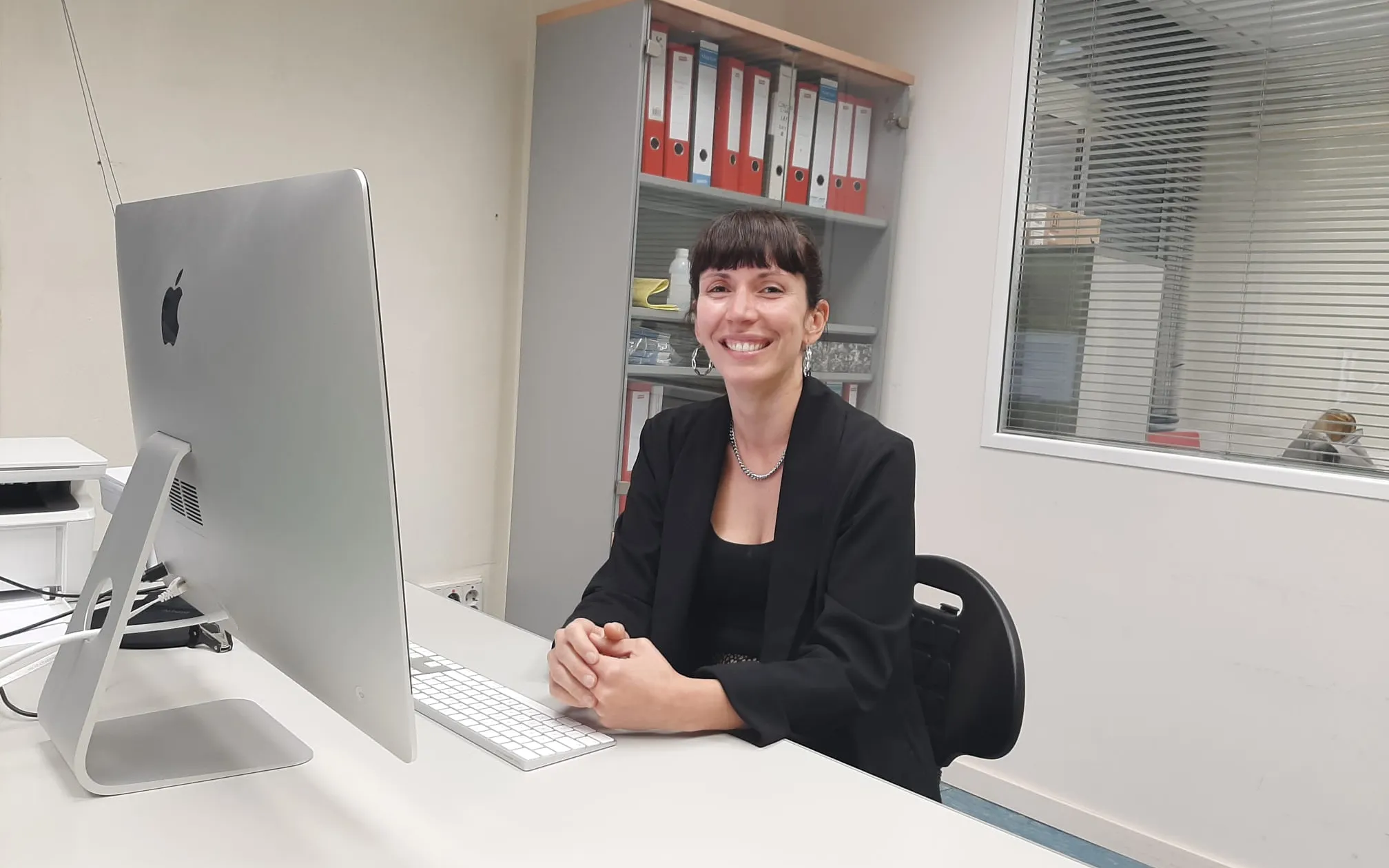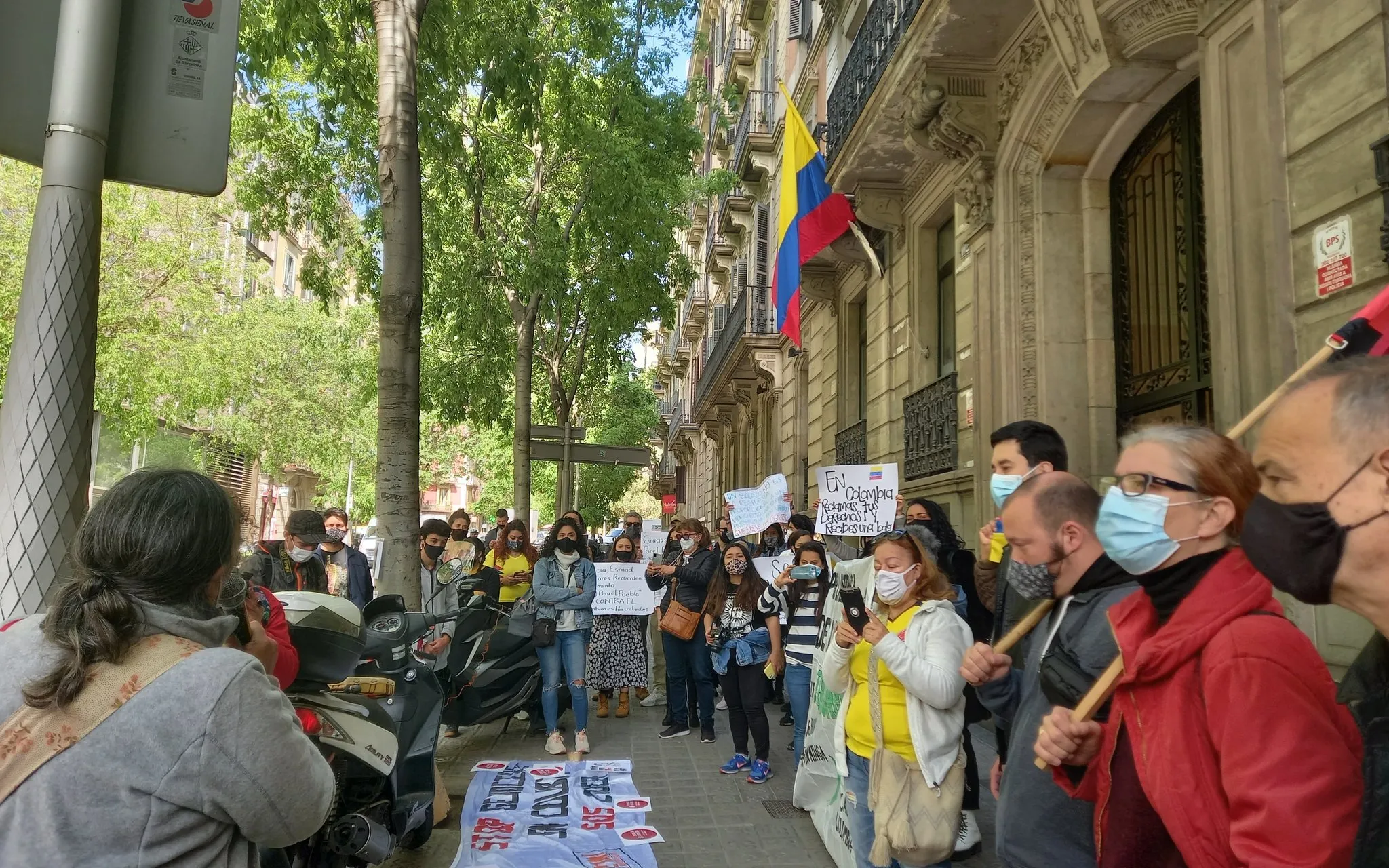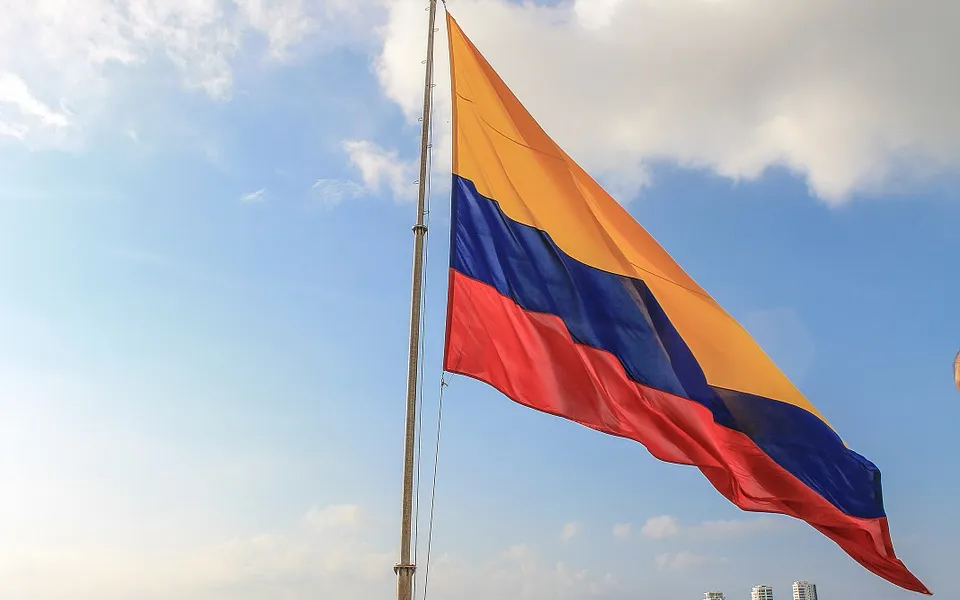Colombia is in a state of social emergency due to the reaction of the authorities to people’s opposition to the government’s tax reform proposal.
At least twenty-four dead and over eight hundred wounded are the latest figures of police brutality in Colombia. For the past eight days, blood has been flowing in the streets in protests against the tax reform proposed by the Iván Duque government. Demonstrations have been suppressed by police and the army, leaving behind shameful images that are being seen around the world.
The popular reaction, however, is not only due to the reform. The Colombian people have exploded in favour of social reforms to end the country's poverty and inequality. We spoke about the emergency situation in which Colombia finds itself with Laura Lorenzi, president of the Taula Catalana per la Pau I els Drets Humans a Colòmbia (the Catalan Table for Peace and Human Rights in Colombia) and coordinator of International Action for Peace (IAP).
What is happening in Colombia?
Since April 28 there’s a ‘Paro Nacional’ (general strike). Initially, it was called to protest against a tax reform proposed by the government, which meant an increase in basic taxes. This, after months of the pandemic, directly affected the poorer classes of the country.
People have decided to take to the streets in an organised manner. They have come out peacefully to protest against this reform proposal, but the response from the police has been absolutely violent. To date, there have been over 30 civilians killed by law enforcement, over eight hundred arbitrary arrests, ten victims of sexual assault by law enforcement and over eighty people have gone missing. These are absolutely alarming figures.
The source of the protests was the proposed tax reform, which has finally been withdrawn.
As a result of the protests, the tax reform proposal has been withdrawn by the government, but the president himself says he will present a new version. The expectation is that this will be a sweetened version, which will not have the support of the sectors that are now protesting. At the same time, the Minister of Finance has resigned due to the protests.
There are cities where the protest is taking place more intensely, such as the cities of Cali and Bogotá, where this week the mayor has authorized the army to intervene in order to contain the demonstrations, which are mostly peaceful.
What was this proposed reform like?
They wanted to raise the VAT on basic commodities, what is known as the ‘basic basket’. This would directly affect those sectors that are already experiencing economic difficulties, especially in a country where the level of inequality is very high, in addition to the effect the pandemic has had. Official levels of poverty have reached 42% of the population, so raising such a tax would affect the poorest classes.
But now that’s not the only reason for the protests anymore.
These mobilisations transcend any one thing and are just the tip of the iceberg. The underlying reasons are the fatigue and dissatisfaction of large sectors of society. The high levels of youth unemployment, the levels of poverty, inequality, etc., and police violence has now been added as one of the factors for the protests.
One of the hopes that arose four years ago was the peace agreement between the government and the FARC (the Revolutionary Armed Forces of Colombia). There were expectations and commitments on the part of the government to carry out a series of social interventions, which potentially had to improve and redistribute the country’s wealth. This has not happened, and moreover, it has been aggravated by a government that not only hasn’t made any effort to implement the peace agreements, but has clearly and forcefully obstructed them.
[the tax reform] directly affected those sectors that are already experiencing economic difficulties, especially in a country where the level of inequality is very high, in addition to the effect the pandemic has had.
How has the government reacted to the protests of the population?
As has happened throughout this president’s term, there’s a fear that there’s no real link to the social sectors in such negotiations between the unions and guilds, which represent the real economy of the country.
Another response has been that of the Minister of Justice, who has resigned. But so far there has been no official response beyond this. The obvious response you see every day, and most of all every night, is violent repression at the hands of the public force. That says a lot about what the president’s position has been until now.
How is the Colombian population experiencing the protests?
Colombia is a country where the inequality and poverty levels are extremely high. There are broad sectors of society that were already suffering, especially in rural areas, and that now have suffered even more due to the pandemic.
The protests focus on specific sectors of society, but at a large geographical level, from large cities, such as the capital, to the smallest village. There is a large presence of youth sectors who are putting a lot of strength and energy into this kind of protest. They also touch on the middle class sectors, because it’s a protest involving all the democratic and progressive sectors of the country.
What rights are being violated?
The right to demonstrate, to free speech, to express political opinions, the right to life, etc. Arbitrary violations are taking place. Journalists also receive direct attacks; the Foundation for Freedom of the Press (FLIP) has warned of the arrest of thirty-three journalists. So far, ten victims of rape by the security forces have been reported, this means there is gender discrimination on top of everything else.
Demonstrations on the roads that connect cities are paralyzing the arrival of food, medicine, and the few vaccines against Covid-19 that Colombia has. Thus, the creation of humanitarian corridors is also requested in order to facilitate the arrival of these basic necessities.
The right to demonstrate, to free speech, to express political opinions, the right to life, all these rights are being violated.
What is the role of the army and of the police forces in these protests?
They appear to be carrying out orders they receive from the government. There are some very sporadic cases of police agents joining the protesters in Cali, but for now it’s a minority. It will be interesting to see how these sectors position themselves over the next few days.
Is there police brutality?
Yes, without a doubt. The numbers we’re discussing are clear evidence that there is police brutality in the protests in Colombia. An excessive use of force is being made to stop peaceful demonstrations in a country that wants to be defined as democratic.
What do organisations like yours ask for to help the people of Colombia?
We ask for international support at the political level, that is to say, for the representatives of different countries to speak in public urging the Colombian government to guarantee the right to protest and to stop the repression as well as investigate rights violations.
On the other hand, the government is being asked to start a process of dialogue with the organisations without resorting to the state of exception in the country. There is already talk of implementing the state of exception, and it would be extremely serious, further exacerbating the crisis that’s already taking place. We also need to let people know about what’s going on, so people around the world can become aware of the situation and public opinion can be made aware of the repression that exists. Finally, we’re asking for an international presence to guarantee the right to peaceful protest.
How is the international community reacting?
There have been reactions of all kinds. There are countries like Canada that have already issued a resolution in favour of protesters and their right to protest. The European Union, for its part, has condemned the government’s repression with such brutal methods.
As far as Spain, there has been no public statement by the government, but we expect some movement in the coming days. In Catalonia, probably in a very few days a statement from the Parliament will be made public condemning the repression and urging the government to start a process of dialogue with the driving organisations.
How can people help from Catalonia?
Civil society is undergoing many mobilisations of support and solidarity with what is happening in Colombia. Many cities, such as Barcelona, have held demonstrations in support of the Colombian population.
Following one of the demands made on us from Colombia, we can help with political advocacy, giving the situation visibility and participating in the actions of support that are taking place









Add new comment